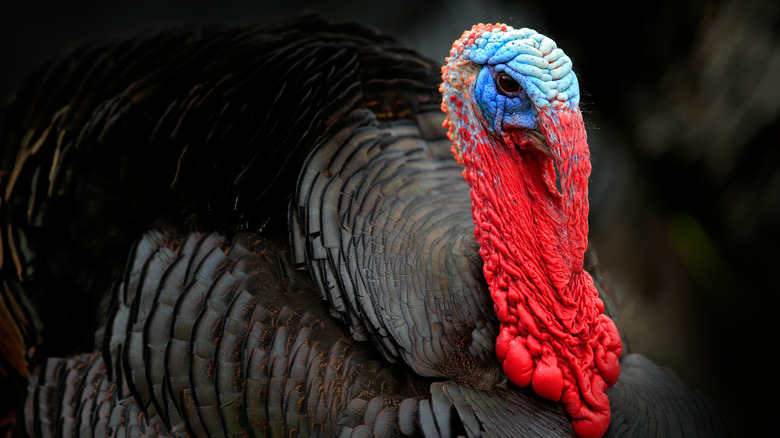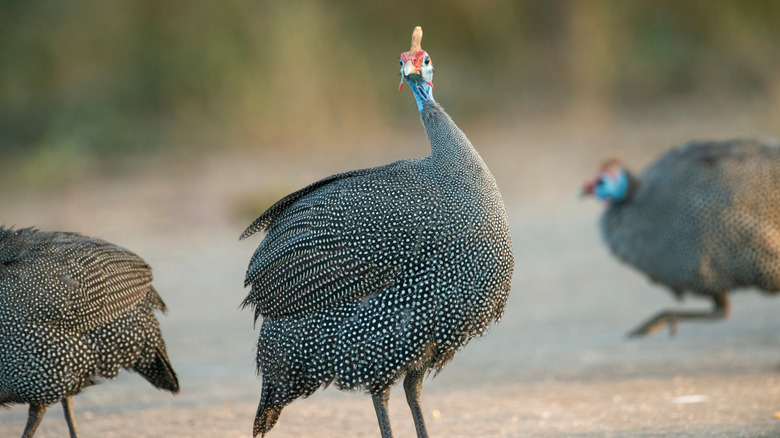The Real Reason We Call Turkey 'Turkey'
The turkey has been a particularly ubiquitous part of American dinner tables on Thanksgiving for over 200 years and has become both a common food export and the focus of holiday traditions such as the presidential pardon. The bird was just as important to the indigenous peoples of North and Central America, where for over 2,000 years they were gradually domesticated across the continent (via The Washington Post). In the case of the Mayans, the turkey was even a source of religious significance and worship.
Yet while the name for the bird varied widely depending on the culture, region, and time period, there was never a time where a native North American language called the bird a turkey. The word Turk instead has been in reference to the Turkish people for hundreds of years (via Dictionary.com). The name only came to be applied to the bird well after Europeans had landed in the Americas. From here, there are in fact two potential reasons for the turkey's modern English name (via NPR).
Many possible origins of the word 'turkey'
Chronologically, the first theory stems from the African guinea fowl. At its height, the Ottoman Empire stretched down along the Saudi and North African coasts, giving them vast access to resources and trade outposts (via Britannica). One of their more popular exports to Europe were various types of African guinea fowl (pictured above), which earned themselves the name of turkey in places like Britain (via The Atlantic). Per the theory, this name was supposedly then transferred to the similar-looking and tasting birds in North and Central America known in America as turkeys.
The second theory is similar in premise. It asserts that American turkeys were imported for sale to Europe through Turkish wholesalers. This supposedly led to such a correlation between the birds and the Ottoman merchants that the animals were named after their sellers.
As for the Turkish people themselves, their term for the bird is hindi. It was inspired by the word dinde, the French name for both turkeys and India — apparently reflecting the Columbus-era belief that the Americas were in fact the latter (via Slate). Since then dialects of many languages including Turkish, Arabic, Polish, and Russian have adopted similar names that imply a South Asian origin of turkeys.

